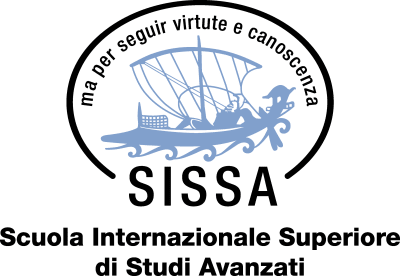
PhD in Neurobiology
International School for Advanced Studies (SISSA)

Key Information
Campus location
Languages
English
Study format
On-Campus
Duration
3 - 4 years
Pace
Full time
Tuition fees
Request info
Application deadline
Request info
Earliest start date
Request info
Scholarships
Explore scholarship opportunities to help fund your studies
Introduction
The aim of the Lectures of the Ph.D. program in Neurobiology is to provide students with a common framework starting from different backgrounds.
Lectures will take place at the beginning of the Ph.D. Program, so to have more time to focus on the scientific research project that will be carried out during the Ph.D. There will be two main scientific modules complemented by a module dedicated to specific experimental methodologies and safety procedures. All the lectures will be in English and will be held by an expert in the field.
Module 1 will be devoted to fundamental aspects of Neurophysiology and Neurobiology: we will review basic notions about neurons, synapses and sensory systems. We will also cover properties of neuronal networks underlying perception in the cortex and locomotion in the spinal cord.
Module 2 will be dedicated to emerging tools and experimental methodologies from Nanotechnology, which can be used to investigate molecular properties of neurons, synapses, and sensory cells. Properties of the interactions between neurons and new materials, such carbon nanotubes and graphene, will be covered as well as basic properties of Atomic Force Microscopy and Advanced Photonics.
Module 3 will focus on methods to study receptors and channels function at the molecular level, to understand signaling mechanisms involved in neuronal plasticity and adaptive responses. This module will be complemented by practical courses and lectures on specific molecular biology methods, like site-directed mutagenesis, protein analysis as well as on the use of conventional microscopy and cell biology techniques. This module will provide students basic information on Microscopy, Immunochemistry, Safety, and Programming.
Moreover, the students will have the chance to attend other specific courses on selected topics such as Computational Biology or Mechatronics.
A course on Introduction to Neuroanatomy will be held by a distinguished expert in the field.
Students with specific scientific interests, not covered by the planned series of Lectures, will be encouraged to participate in International Winter or Summer Schools devoted to these specific topics.
The essence of the Ph.D. Program in Neurobiology is the completion of the scientific Ph.D. Thesis which will consist of a project at the frontline of contemporary investigation in Neurobiology. The subject of the Thesis will be chosen among the research projects of the Faculty of the Ph.D. program.
Main research lines:
- Cellular and network mechanisms of neurotransmitters
- Synaptic plasticity in development
- Sensory systems
- Regeneration of immature spinal cord after injury
- Neuronal and artificial computation
The most recent placements after Ph.D. at SISSA:
- University College London London, UK
- CNRS, France
- Baylor College of Medicine Huston, USA
- Monell Chemical Senses Center Philadelphia, USA
- Karolinska Institutet Solna, Sweden
- Universität Heidelberg Heidelberg, Germany
- Columbia University New York, USA
- University of British Columbia Vancouver, Canada
- Max Delbrück Center for Molecular Medicine, Berlin, Germany